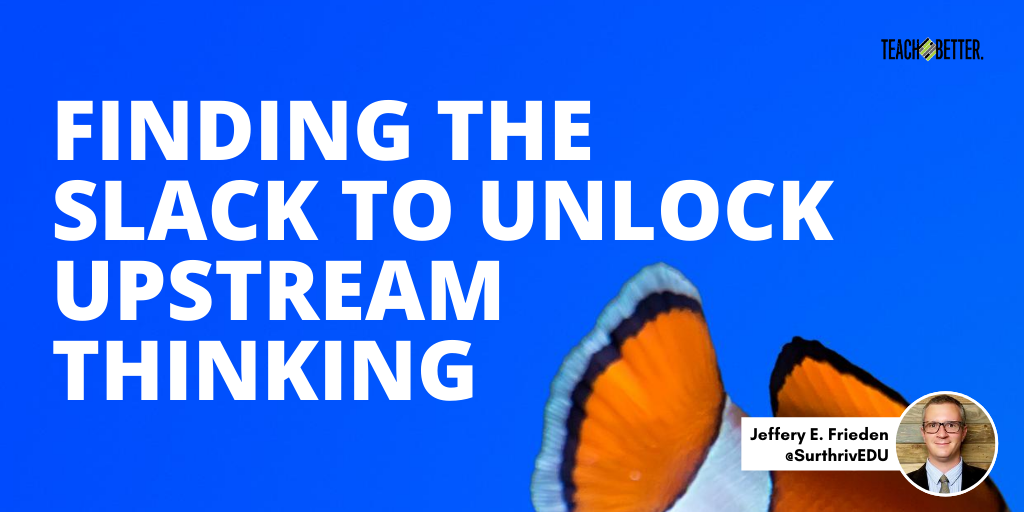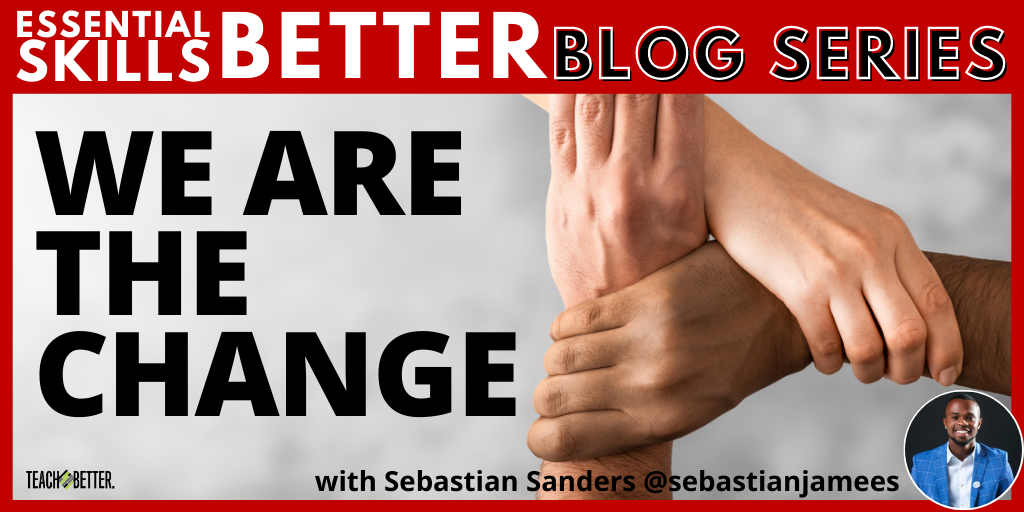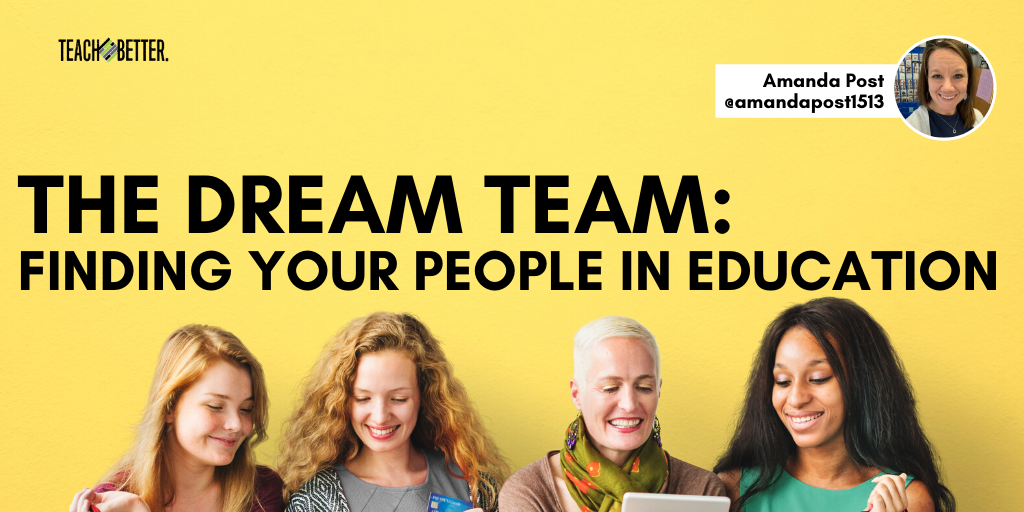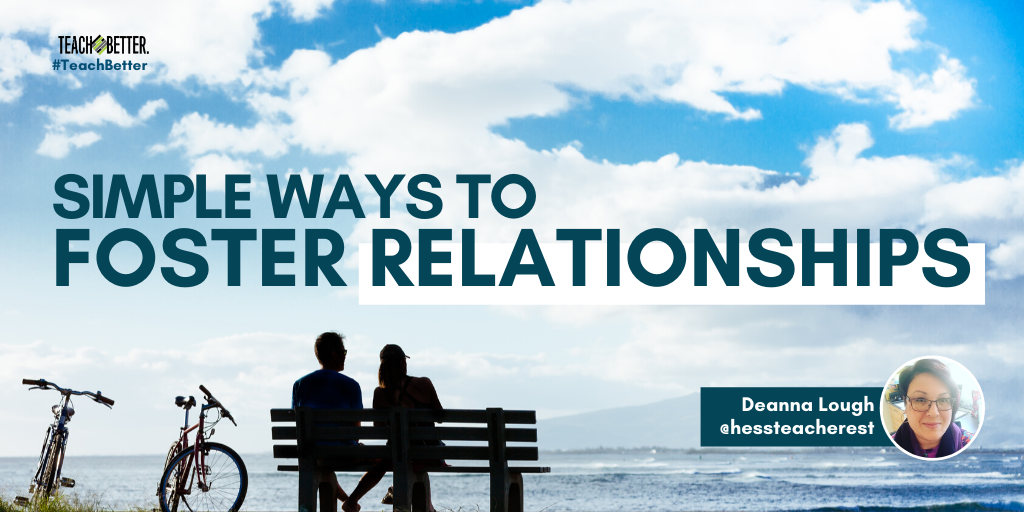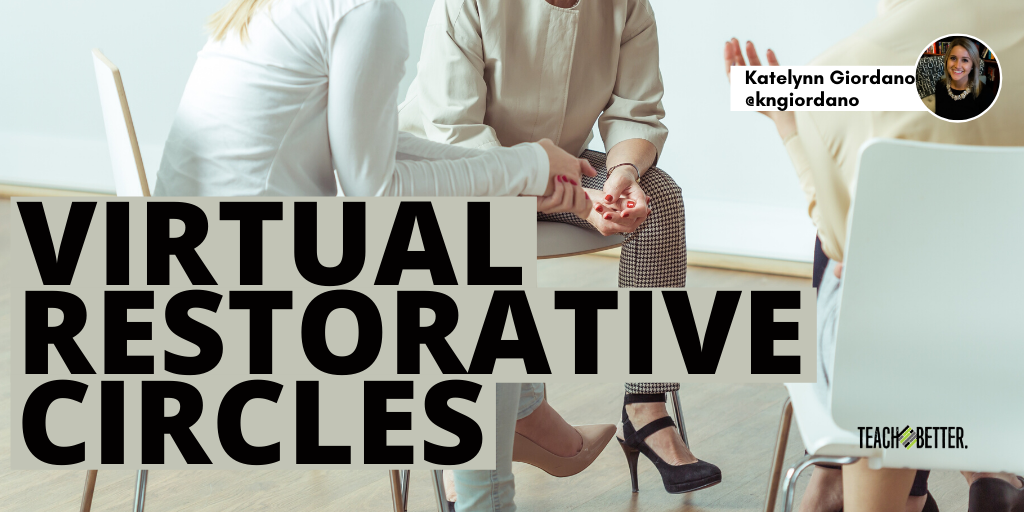TL;DR: Reflecting on a book study of Upstream: How to Solve Problems Before They Happen by Dan Heath, and the educational impacts of the book. Upstream thinking involves addressing problems before they even begin. When we focus all of our attention and energy on the problems right in front of us, our ability to plan and organize is diminished. Instead … Read More
We Are the Change
TL;DR: This post provides motivation for educators as they begin one of the most challenging years in their career. Your students need you. Let them motivate you to overcome any obstacles. Introducing the Essential Skills Better blog series! We Are the Change: Making the Year a Success As the new school year begins and we welcome our kids back, we can’t … Read More
The Dream Team: Finding Your People In Education
TL;DR: 10 tips to finding your people in education, including doing what is best for students, taking risks, being positive, planning and following through, and respecting others’ ideas. Having the support of colleagues can help encourage you to take more risks. The absolute last thing that someone wants is be involuntarily moved to a new grade level. Trust me, I … Read More
Simple Ways To Foster Relationships
TL;DR: Surveying students and the 2×10 strategy are two ways to strengthen relationships with your students. Initiating meaningful conversations with others to foster classroom community. When I first interviewed for teaching positions, I was never asked a single question about how I build classroom community. I was asked about my philosophy around classroom management (firm, consistent, and fair), and how … Read More
Virtual Restorative Circles
TL;DR: Restorative circles are personal class discussions. Some benefits of restorative circles for your students include building community and creating a sense of acceptance. Restorative circles can provide a safe environment for students both in-person and virtually. I learned of restorative circles at the December 2019 AIMS Network Conference. The session I attended described how these circles transformed classroom culture … Read More

